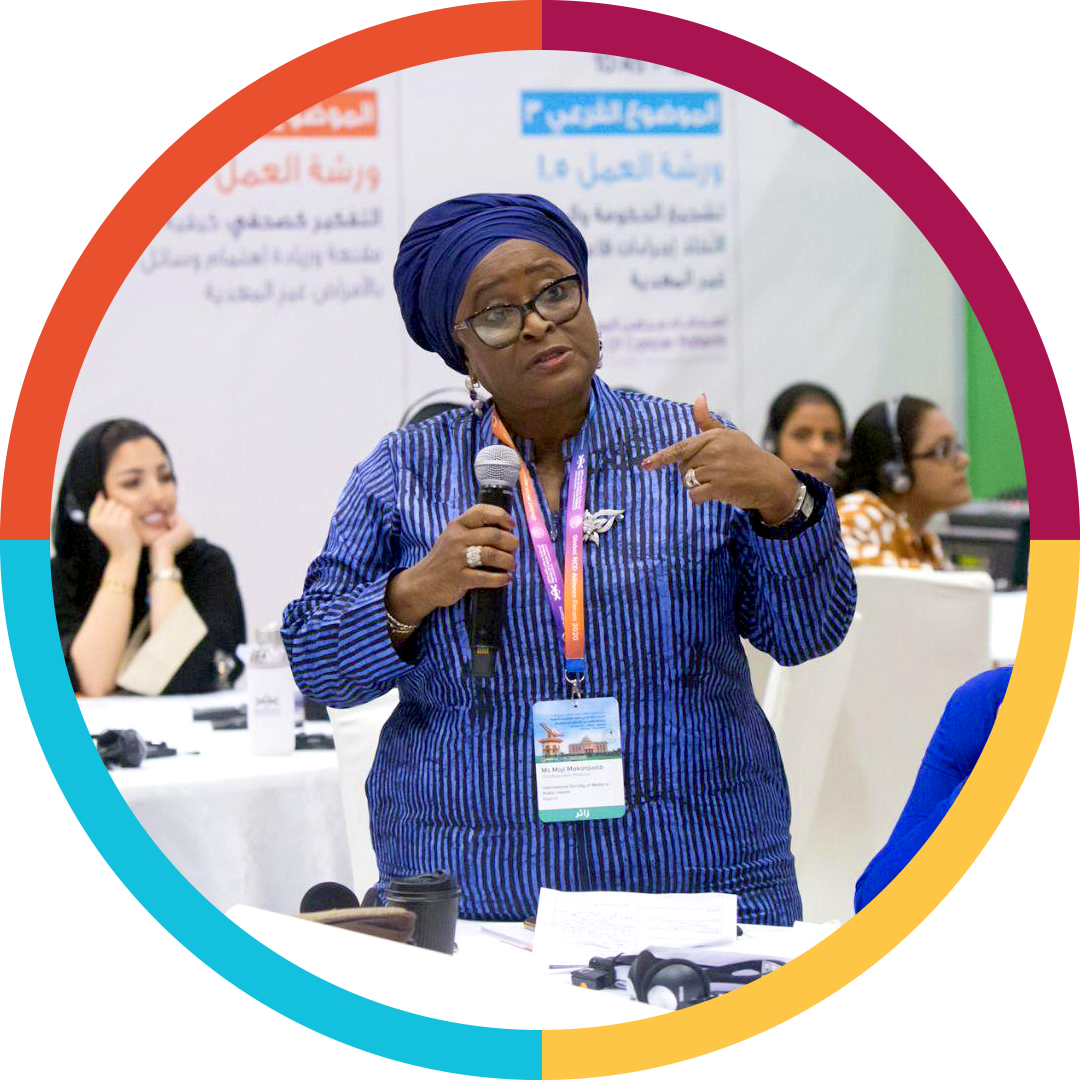What is true meaningful engagement of people living with NCDs?
'Meaningful engagement’ of people living with NCDs has become a bit of a buzzword in the NCD circle, yet its true importance within the NCD response is not well enough understood. To develop this widespread understanding, it is vital to first highlight what meaningful engagement is not. Meaningful engagement of people living with NCDs is not tokenism, i.e., having people living with NCDs as symbols just to meet a requirement with no real contributions from them. It's also not a lack of communication through the entire process of engagement, it is not failing to consider diverse opinions, and it is not creating avenues where there are huge power imbalances, which results in a situation where people living with NCDs feel intimidated to make their contribution. These practices continue to be the norm when involving people living with NCDs.
What meaningful engagement is, is the active involvement of people living with NCDs, whose experience with NCDs and health systems makes them experts, in every stage of the design and implementation of NCD policies and programs. This entails individuals, organizations and policymakers equipping people living with NCDs to be able to speak and contribute with authority, remunerating them for their work just as you would a professional.
Personal experiences with meaningful engagement and the value that has been created
So, in reality, have there been instances where this has actually worked? You may ask, and the answer is yes! In my personal experience, having been meaningfully engaged in various local and international platforms, I can confirm that when people living with NCDs like me are meaningfully engaged, programs become more people-centered, and therefore, the programs work.
Starting with my most recent and perhaps most important experience with meaningful engagement, is my participation at the 76th World Health Assembly in Geneva. Supported by the NCD Alliance, I presented and made interventions on four panels, where I emphasized three key messages: that people living with NCDs are the experts in their conditions and should be involved in all stages of policy and program development; that the time for action on NCDs is now, including within the UHC agenda, funding, and programming; and that NCDs should be looked at from a broader perspective, considering other diseases like HIV/AIDS, non-health contributing factors, and the need for policy-level interventions.
Throughout my engagement in Geneva, I had the opportunity to meet various policymakers, funders, and donors, who I have continued to engage with beyond the event. Some of these include the UNICEF, Center for Universal Health and Novo Nordisk just to mention a few. Together, we are looking at implementing local interventions to address the burden of NCDs in our community with a focus on diabetes and obesity advocacy, literacy, and community training projects. Clearly, when meaningfully engaged, change happens.
Another example I would like to share is my experience of being meaningfully engaged in the UHC test project in Kenya carried out between 2017 and 2019. In this period, the government of Kenya was running a UHC pilot in four counties, and I was meaningfully engaged in two of them, Kisumu and Nyeri. During my engagement, I presented two research articles about the on-the-ground situation of NCDs and made recommendations, including the importance of engaging youth and people living with NCDs in the planning and implementation process, as well as leveraging technology for better program implementation.
Some of my recommendations were picked up and implemented, including the commitment to engage youth and people living with NCDs in the planning and implementation committees of the pilot and similar programs in the future. One immediate effect from this implementation was the consideration of the reviews of young people on the strategy document. This review was coordinated by the Stowelink Foundation. The project was put on hold due to the political changes in the country; however, we could still feel the value of our involvement whilst the project was active. It was inspiring to see the government taking steps towards engaging people living with NCDs at different stages of program design and implementation.
People-centred UHC – the role of meaningful engagement of people living with NCDs
It is so important that the right framework for meaningful engagement is set, especially when it comes to engaging people living with NCDs in the conversation on universal health coverage (UHC). More than anything, UHC needs to be as people-centered as possible. A truly people-centered UHC ensures that people living with NCDs are engaged in the decision-making processes, policy development, and implementation, as well as in the design and delivery of healthcare services under the UHC framework.
People living with NCDs are experts in their conditions; they are experts in the day-to-day interaction with health facilities and health systems; they are experts in understanding the gaps and challenges that need to be addressed because they face those challenges daily. These people are also experts at providing suggestions for what would work optimally and what would be the best way to implement various components in the UHC framework. This is why people living with NCDs need to be engaged in all processes to ensure that UHC is people-centered. People living with NCDs represent almost one quarter of the world's population, and to not involve them in these conversations is to make a fatal error in the design and implementation of any UHC program.
On the flip side, by engaging people living with NCDs in the UHC conversation, policymakers and relevant stakeholders benefit from a more inclusive contribution that factors in equity in access to healthcare services. This engagement also ensures that people living with NCDs are able to have ownership in various UHC initiatives, ensuring the success of those initiatives. Furthermore, when people living with NCDs are more involved, they ensure that the policies and programs adopted are more effective, and they enhance the accountability of such programs when they are involved throughout the life cycle. Finally, this engagement provides a platform for co-creating and building together solutions and interventions that work, a true win-win for everyone.
The moment for caring is now, and there is no better time to engage people living with NCDs to ensure that we have people-centered UHC policies and programs. So, what are you going to do today to advance this agenda?





